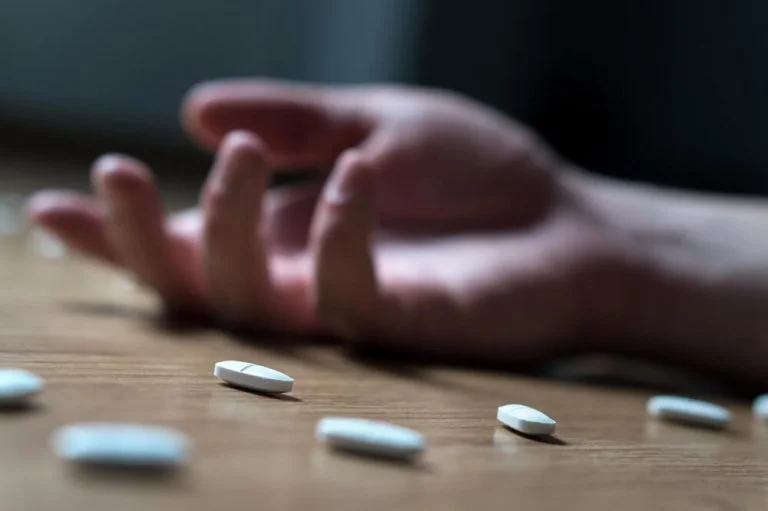Addiction Overdose

How to Prevent Overdose of Drugs: The Signs and How to Prevent It
The worst possible outcome for a drug abuser is an overdose that leads to their death. No one wants that for themselves or their loved ones, yet every year, thousands of lives are lost to the terrible disease of addiction and the abuse of drugs. The CDC’s in-depth analysis of the overdose statistics for 2016 showed an increase in overdose in all of the population groups and demographics. Over 63,000 people lost their lives that year to drug overdose. How to prevent overdose of drugs has become increasingly important in our society, and as such, we will discuss the drug overdose symptoms for the most-abused drugs in the United States.
Before we explore the various signs of drug overdose, it’s important to note that if you have any suspicion that someone is overdosing, the first thing you should do is call emergency services immediately, such as 911.
Shared Drug Overdose Symptoms
The normal effects of some drugs can seem drastic, which often makes it difficult to tell if someone is experiencing the effects of a drug or an overdose. How to prevent overdose of drugs starts with knowing the symptoms of overdose, but sometimes you don’t know which substance or substances they abused that led to their current state. As such, we will discuss common substance overdose signs.
The common shared overdose symptoms that indicate a potentially life-threatening condition include the following:
- Dilated pupils that are unresponsive to light changes
- Agitation
- Vomiting and nausea
- Loss of consciousness
- Uncontrolled twitching and convulsions
- Violent behavior and aggression
- It becomes hard to breath
- Poor coordination
- Severe hallucinations
Specific Drug Overdose Symptoms
The following section explores what the specific symptoms are that indicate someone may be experiencing an overdose. How to prevent overdose of drugs in such a situation starts with recognizing the symptoms so that the right steps can be taken and the damage can be minimalized and possible death can be prevented.
Alcohol Overdose Symptoms
An overdose on alcohol, also known as alcohol poisoning, is a severe condition that is caused by the excessive use of the depressant alcohol. During the early stages of drinking, the effects of alcohol is more similar to that of stimulants, but as the effects run their course, the depressant nature of the substance becomes apparent.
The signs of alcohol poisoning are as follows:
- Loss of consciousness
- Severely impaired coordination and disorientation
- Hypothermia
- A blue-color skin tone
- Non-responsiveness
- Seizures
Opiate Overdose Symptoms
The leading cause of overdose deaths in the United States currently is opioid pain relievers and other forms of illicit opioids such as heroin. The drugs have depressant properties that can prove to be fatal if too much is taken at once. The dangers come in when the depressant quality overrules bodily functions such as heart rate and breathing. Knowing the signs of an overdose on opioids is the first step on how to prevent overdose of drugs turning into another casualty.
The common signs someone is experiencing opiate overdose symptoms include the following:
- Loss of consciousness
- Unresponsiveness
- Dangerously slowed breathing, which may stop altogether
- A bluing of the fingertips and lips
- Coma
The main concern is that heart rate and breathing become so slowed that the brain and other important organs don’t receive enough oxygen, which can cause coma, permanent brain damage and death. How to stop an overdose of pills becomes impossible without the knowledge that it’s happening. Once the signs are recognized, how to stop an overdose of pills then involves the use of life-saving medication such as naloxone.
Stimulant Overdose Signs
Stimulants are a class of drugs that includes the likes of methamphetamine, cocaine, and molly (ecstasy). They have an opposite effect compared to depressants, usually causing heightened energy and alertness. However, this overactive state that the body is put into can lead to several dangerous outcomes.
The following are some of the most common overdose signs from drugs such as meth, molly, and cocaine:
- Seizures
- Psychosis
- Headaches
- Pain in the chest area
- Fevers
- They may struggle to catch their breath
- Disorientation
- Severe anxiety
- Agitation
- Stroke or heart attack
The overstimulation of the person’s body can result in severe strain on the body, and in some cases, it can lead to a coma and death.
Hallucinogen Overdose Signs
Hallucinogens are a class of drug that alters one’s perception of reality. It can be such a devastating effect that the person may act or respond in a way that puts their life in danger. The drugs in this substance category include magic mushrooms, LSD, peyote, and mescaline.
The following looks at what the common hallucinogen overdose signs are:
- Seizures
- Convulsions
- Slowed breathing, which may stop entirely
- Coma
- Extreme anxiety and panic attacks caused by hallucinations
May people have severely injured themselves when experiencing a “bad trip” on hallucinogens. How to prevent overdose of drugs such as LSD starts with being able to recognize the signs, then one can take the appropriate actions such as calling 911.
Anabolic Steroids Overdose Signs
Anabolic steroids are designed to mimic the effects of testosterone, which is the male hormone responsible for muscle growth among other things. A person who has used too much steroids in one sitting risks overdose, as it is a stimulant with many similar dangers that stimulant overdose has.
The following are the signs to be on the lookout for:
- Stiffness in the muscles
- Impaired judgement
- Irritability, aggression, and violence
- Trembling
- Mania
Prevention
Since any person who uses a substance that wasn’t prescribed to them, or uses it in a way other than what was prescribed, runs the risk of overdosing. The real danger comes in with illicit drugs since there is no way to tell if they have been mixed with another, more-powerful substance to enhance the effects, which increases the risk of overdose. This is what is happening in the case of opioid abuse: fentanyl (a powerful opioid) is being added to various drugs, which is causing many overdose cases.
The only way to truly prevent an overdose is to stop further abuse of drugs and alcohol. Of course, this isn’t as simple as just saying you want to stop because there are withdrawals symptoms, cravings, and addictive behavior that makes it difficult to break the habit. However, rehab centers can provide addicts with the tools, medication, and therapy they need to overcome the disease and break the cycle of abuse.


